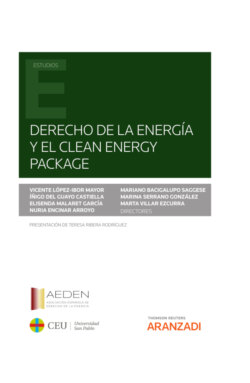Читать книгу Derecho de la energía y el clean energy package - Elisenda Malaret García - Страница 36
На сайте Литреса книга снята с продажи.
II. THE PRINCIPLES OF ENERGY LAW 1. THE PRINCIPLE OF NATURAL RESOURCE SOVEREIGNTY
ОглавлениеNowadays, when we refer to natural resources and the public rights above them, we cannot ignore the fundamental concept of sovereignty of the State and the right to freely dispose of the natural resources on behalf of the citizens. Developing countries and the ones under colonial domination started to claim their freedom and independence to take control over their resources as the only way to fulfil an economic self-determination. From South America to Asia and Africa, States realized that a full and absolute control over natural resources would have represented not only the way to prevent foreign investors to take full advantage without any proportionate compensation to the State and the communities involved; but also the only way to foster the economy, to succeed with new economical strategies and to show a full and absolute sovereignty to the other countries. This spirit of revenge affected the international political scenario and, therefore, the international legal framework above natural resources. With the United Nations General Assembly Resolution 523 (VI) adopted in 1952, it was declared how developing countries have the right to exploit their natural resources in accordance with their national economic plans. The most important step was made in 1958 when the Commission on Permanent Sovereignty over Natural Resources published the “Declaration on Permanent Sovereignty over Natural Resources”, the UNGA Resolution 1803. The principles established in the Resolution resulted in a full declaration of independence of the colonial Nations over the administrative control of foreign countries. So, Nations gained the right under international law to control their own resources and to exercise their management powers towards the International investors. A right that has been defined absolute, permanent, and inalienable9. Despite the United Nations legal acts are commonly recognised as instruments of soft law, it is not possible to deny how the concept of sovereignty has been applied and enforced by several States. And it is obvious how this principle has resulted in an opinion juris communis, mirroring the international customary law. Born as soft law principle it has been incorporated in treaty law thanks further international developments. Further steps have been achieved in 1974 with the “Declaration on the Establishment of the New International Economic Order” from the UN General Assembly, the concept of sovereignty was again pointed out involving the duty of compensation of the States which have been deprived of their resources and the potential economic benefits under colonial dominations. But what changes has the principle undergone? How has it been contextualised with the regulatory changes in the legal systems and policy objectives of the energy sector?
If on one side the principle of sovereignty expresses public ownership over natural resources as declared in the UN Resolutions as well as in the treaty law and jurisprudence, on the other side we have the rule of capture or private rights of the landowner above the natural resources founded in his land. The State cannot claim any rights over the land that belongs to a private owner10. Therefore, it is interesting to examine how nowadays the different assets of public and private ownership above natural resources can affect the efficiency and the development of the energy sector towards an energy transition. The case of shale gas is of interest11. It has been shown how in the US the private development of the land with the rights belonging to the mineral owner has resulted in a quicker evolution of the shale gas industry as a valid alternative to the coal dependence12; on the other hand in UK, the development of the principle of sovereignty over natural resources has followed the international pathway and so the domestic law has been built in accordance to the customary and treaty law after Resolution 1803. The UK decisions concerning natural resources management belong to the State and not to the mineral owner. Moreover, the British landowner does not have any economic incentives in encouraging the development of the shale gas industry. This lack for the landowner results in delaying the development of an important new energy source13. Therefore, it seems that the rule of capture has shown more efficiency than the principle of public sovereignty over natural resources in order to promote the use of a different energy source and to provide benefits to the community and people involved in the energy project. This means that an evolutionary interpretation of the principle of sovereignty over natural resources is needed to create a balance between public and private interests for the best interest of the energy developments.
